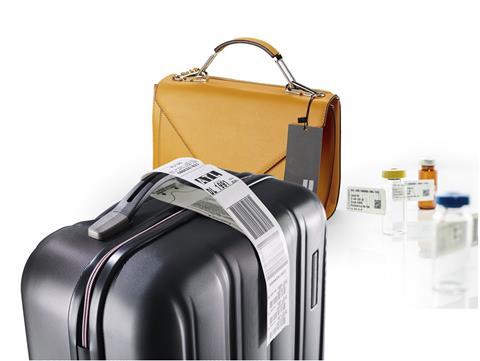
Simplifying the route to smart-label packaging is the focus of a new Intelligent Labelling Solutions initiative from Avery Dennison. The Intelligent Labelling portfolio supports label converters as they explore new and sometimes unfamiliar opportunities in labelling and packaging. With a very broad range of options, the portfolio helps to maximise not only well understood capabilities, for example individually serialized digital print, but also evolving state-of-the-art technologies such as RFID.
Michael Sanders, senior product line director, Select & New Growth Platforms, at Avery Dennison, said that the opportunities opened up by intelligent labelling are enormous, and with the right support converters can create significant breakthroughs: “Converters are familiar with widely adopted barcodes and QR codes, including item-level customisation using digital print - and this portfolio simplifies material choices as mass customization grows and label batches shrink. Digitally printed labels are set to grow further as brand owners seek fresher and more relevant communication with consumers via quick changeovers and variable information printing.
“However, there is also huge untapped potential for more sophisticated technologies such as RFID. RFID options include ultra high frequency (UHF) inlays, commonly used for item level tracking and visibility, and near-field communication (NFC) inlays, increasingly being used for consumer engagement and payments. Packaging can be about far more than shelf impact – it can also transform logistics and enhance the consumer experience by enabling the connection to the digital world and the ‘Internet of Things’ (IoT). We are excited about the growth potential for converters made possible through intelligent labelling.”
Intelligent labelling applications are diverse, but there are several areas where the technology is especially important.
Inventory accuracy and supply chain optimization are the first important drivers, helping businesses to ensure a more effective logistics process by using RFID to track anything from a single item to an entire pallet.
Product safety and product authenticity are two further focus areas. Product expiration dates can be monitored far more easily using RFID, with commercial benefits that include first-in-first-out stock management (important in segments spanning everything from food to tyres). For highly perishable food and pharmaceutical products, technologies such as TT Sensor Plus™ 2 can help to protect goods in transit. TT Sensor Plus™ 2 is a label around one-third the size of a credit card which logs and stores temperature data throughout shipping. Data can then be uploaded to a smartphone using NFC at any point in the supply chain. The device replaces bulky and expensive conventional data loggers.
Content communication is also important. Consumers can gain additional value through personalised content such as recipe suggestions, giving brands a valuable marketing opportunity. An RFID label can even be used to prompt re-ordering of food in a smart domestic fridge.
Sanders explained further that although intelligent labelling is exciting in terms of new business opportunities, converters have to make sure that their chosen solution is both cost-effective and practical: “We offer all of the technical support, portfolio choices and service needed to make sure that converters see successful application outcomes. There is no doubt that intelligent labelling is an important direction of travel for the labelling industry, and as the world’s largest UHF RFID partner with over 800 patents and applications worldwide, Avery Dennison is committed to driving that movement. We are providing converters with not only the right products, but also initiatives such as our I.Lab facility in Oegstgeest, the Netherlands, allows converters to see and experience the new technologies for themselves.”
More info:













